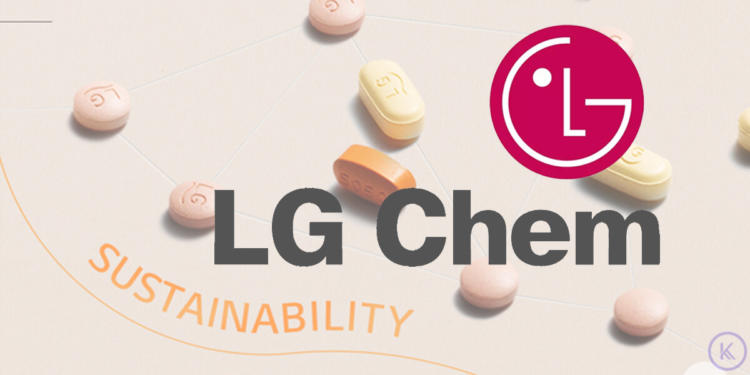LG Chem, on Monday, unveiled its plan to neutralize its net annual carbon emissions to 10 million tons by 2050 under the initiative “Carbon-neutral Growth 2050.” The LG Group affiliate said that the program is part of its efforts to become an eco-friendly and responsible corporation while pursuing business growth.
The South Korean chemical and battery-manufacturing company refers to carbon-neutral growth as reducing net carbon emissions resulting from business growth, aiming to make the total sum zero.
According to the initiative, LG Chem would maintain its carbon emissions in 2019 of ten million tons. The strategy entails cutting 30 million metric tons from the projected 40 million tons of carbon emissions by 2050 and eventually achieving zero net carbon emissions.
The company said that to achieve its goal, it would need to develop more eco-friendly chemical products, create or utilize more renewable energy, and establish more energy storage systems (ESSs).
Shin Hak-cheol, LG Chem’s vice chairman, said that with sustainability as the basis and core advantage of its new business model, LG Chem could help solve environmental and societal problems in the country and abroad.
He added that the company would also solve would also provide innovative and various solutions for sustainability well beyond the company’s 100th anniversary.
LG Chem’s sustainability efforts also extend to electric vehicle batteries. It aims to reuse and recycle dead EV batteries collected from automaker clients and place them inside ESSs utilized in EV charging stations.
Meanwhile, the company also aims to develop biodegradable plastic using corn-based materials by 2024.
Industry Trend: Sustainability Amid Corporate Growth
In the chemical business sector, achieving sustainability and reducing carbon emissions while pursuing corporate growth has been an industry trend.
South Korean tech giant, Samsung Electronics, pledged to use as much as 500,000 metric tons of recycled plastic in the next ten years for products such as air conditioners, refrigerators, and phone chargers.
In the company’s 2020 Sustainability Report, renewable energy was responsible for around 92 percent of used electricity in its facilities located in Europe, the U.S., and China. Samsung said that it aims to raise the usage of renewable energy to 100 percent.
Dow, a U.S.-based chemical company, also pledged to achieve zero net annual carbon emissions by 2050. Initially, the company vowed to cut its net annual carbon emissions by 15 percent or 5 million metric tons from its baseline this year.
Meanwhile, South Korean refiner SK Innovation invested 40 billion won ($33.4 million) in December last year at its Incheon plant. The company improved its heat exchange facilities to reduce carbon dioxide emissions by 80,000 tons annually.







